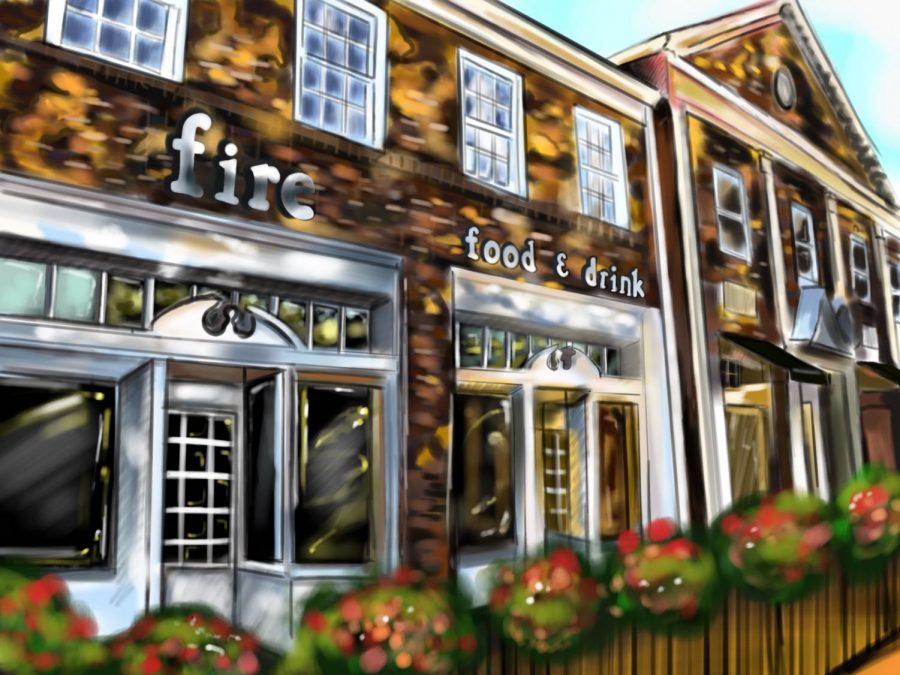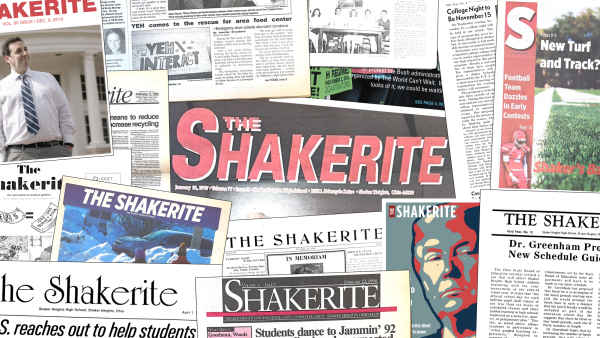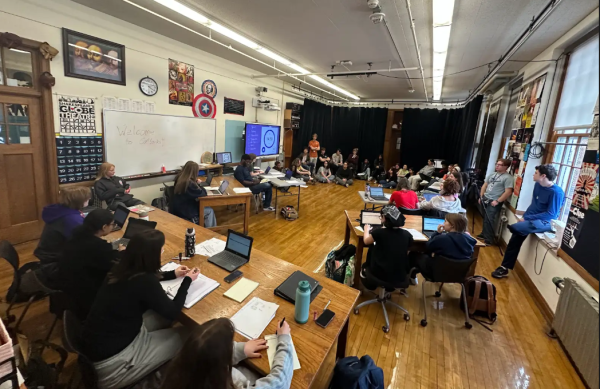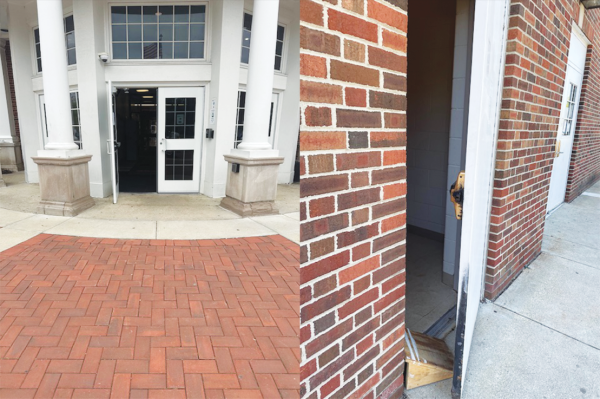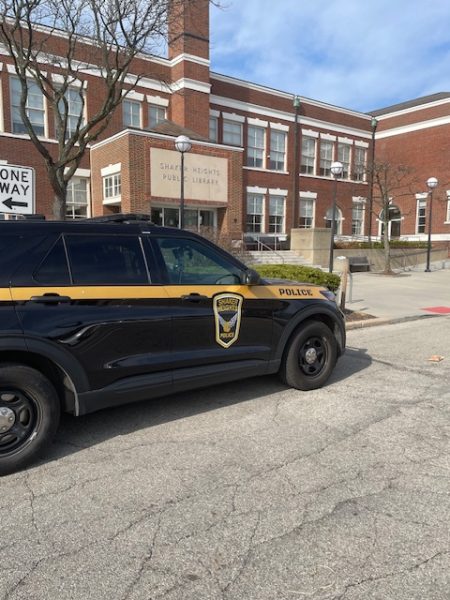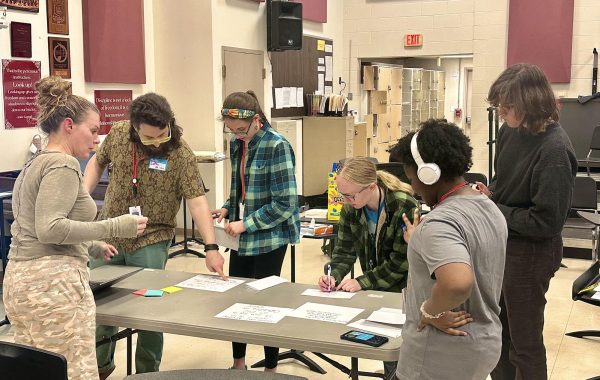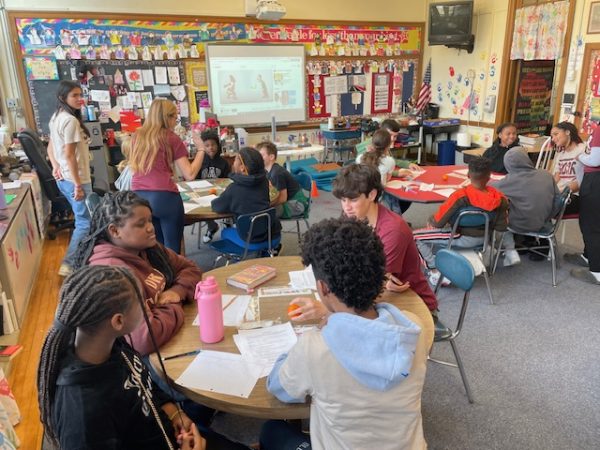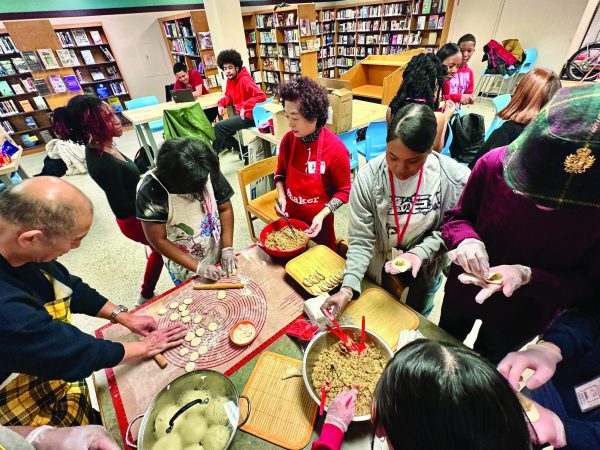Lessons From Fire
Even though they annoy me sometimes, I love my family, and one of the essential reasons for that is because they’ve instilled in me the value of hard work. Truly, they’re some of the hardest working people I know, and it’s because of them that I’ve always wanted a job of my own.
However, when I went out to get a job during junior year, I discovered that it wasn’t as easy as I thought.
I searched for hours, days and weeks for employment, but I had no luck. I was turned down by grocery stores, retail stores and pharmacies, but those rejections only fueled my perseverance. It was only when one of my friends told me about working at Fire that I’d discovered a glimmer of hope. I’d always heard of the Shaker Square restaurant, but I’d never eaten there or even been inside until the interview. When I finally went inside, I was intimidated by the immaculate dining room and humming, jazzy music overhead.
In hindsight, I shouldn’t have been so intimidated — because I got hired, but as I looked around, it was impossible not to feel out of place. I quickly realized that the interview was only a preliminary challenge, and I discovered how stressful, rewarding and educational a job in the service industry could be.
I was confronted by a long list of service rules to ensure guests are served with the utmost quality, and my face often betrayed my confusion before I could verbalize it. As a busser, I had to quickly memorize table numbers, opening tasks, closing tasks, proper clearing techniques, proper bussing techniques, and most of all — how to talk to customers.
While the job was difficult at first, it didn’t take long to see the benefits of work. From talking to customers every shift, my communication skills improved. After hours of shifts, I became much more comfortable talking to new people and coming up with jokes quickly; there’s an intangible joy to getting in a one-liner alongside clearing plates.
Talking to customers sharpened my improvisation skills. After three months or so, when a customer jokingly asks me to box their last, miniscule bite of food or fit the remains of a fully cleaned plate into a box, I can always tell them, “I don’t think it’ll fit.”
Granted my jokes backfire sometimes.
Once, a customer wasn’t joking when he asked me to box a piece of steak, the size of my thumb, and I jokingly asked them, “Are you serious?” He affirmed his request, and I simply had to say, “Well of course, sir,” and make sure to box his food with care. It’s not to say I make mistakes often, but working has given me the ability to bounce back from awkward interactions with ease.
Besides learning minimal improv, I also became much better at operating under pressure. I stopped worrying about surviving unit tests after enduring Sunday brunch shifts of 280 hungry customers, and it made other challenges such as SGORR days or Sankofa performances easier to manage.
Furthermore, I must admit that I’ve fallen in love with culinary culture while on the job. It’s incredibly satisfying to ask the chefs or Doug Katz — the head chef of Fire — questions about ingredients, course or spices because it’s taught me a lot about proper preparation. Now when I go out to eat, I derive more enjoyment out of service, because I can appreciate the hard work that goes into a guest’s experience.
Also, I can’t tell you how much happier I was when I no longer needed to ask my Mom for money when going to hang out with my friends. Thanks to working a job, I enjoyed more options when going out, and I don’t need to worry about stretching a $10 dollar allowance for the entire night’s plans anymore.
Besides money, having a job will introduce you to new people that you wouldn’t meet at the high school. At Fire, I’ve met intriguing characters. I’ve met a server who doubles as a ballerina, I’ve chatted with a chef who enjoys writing science-fiction novels, I’ve handed plates to a dishwasher who explained to me the challenges of being a Jehovah’s witness, and I’ve worked under a manager who was a former opera singer. After meeting all of these people, talking to them about their passions, and learning about the challenges of their other jobs, my worldview expanded.
Ultimately, I’ve benefited greatly from having a job, but it’s certainly not for everyone. There’s no point in getting a job if you can’t dedicate focus to it or if it derails your studies.
However, if you have the opportunity to work, then I recommend it. You sacrifice a portion of your free time, but in my opinion, it’s worth it because you develop a stronger appreciation of your time. Boring plans lose their appeal when you have limited free time on the weekends, and I found myself sticking closer to plans when I made them. The scarcity of time in some instances forced me to develop stronger task management abilities that can only aid me for the rest of my life.
Now, I understand that not every job is as exciting or cultured as working at Fire, but most any job will give you new opportunities to meet people, develop skills and learn valuable lessons that can’t be found in a classroom.
Fryer is a member of CORE, the leadership of the Student Group on Race Relations. He is also a drama leader and head script writer for Sankofa. He is now a Shaker alumnus. He can be contacted at adonis.fryer7@gmail.com. Guest ‘Rites and Letters to the Editor can be sent to shakeriteserver@gmail.com and the current editor-in-chief, who can be reached at maenagusky@gmail.com. The Shakerite reserves the right to reject any Guest ‘Rites or Letters to the Editor.

